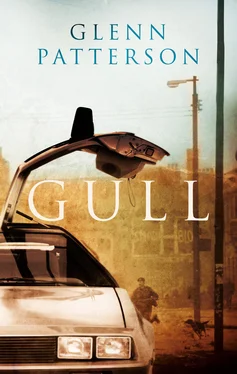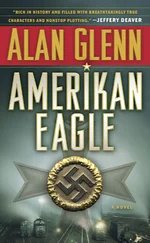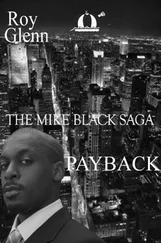‘You can rest assured that there will be no such clause in the revised letter that accompanies this loan. As for Lear Fan, by the way, there is no comparison. It brought rather more of its own money to the table and it won’t see a penny of ours unless it gets a plane in the air before the end of this year, which’ — not quite under his breath — ‘might have been a sensible condition to apply in this instance too.’
Maybe he thought those really were gull’s wings.
He had walked with Randall around the assembly shop (still sparsely enough fitted out that Randall had broken up a full-scale lunch-hour soccer game only two days before), nodding with what at moments and in another person might almost have been taken for approval. Well, if you did have £65 million of public money to spend this would not be the worst way to spend it…
His parting shot, though, was a reversion to type. ‘The problem with making unrealistic promises is that even though people know they are unrealistic they are inclined to hold you to them. Until this point the clock has been ticking down. From here on it is ticking away. You know the principle of the away rule, don’t you? Everything against you counts double.’
Randall had not the first idea about the away rule, but he understood the import of the metaphor.
To replace it with one of his own: the longer the delay the deeper the shit they were likely to find themselves in.
The only thing he could do was to help keep the preparations here on track, be ready.
*
The way it was explained to Liz and her co-workers, they had to be familiar with every stage of the assembly process so that in the event of an emergency — ‘Armageddon’ was the word Mr Bennington had used, and coming from him you could well imagine it — any one of them could stand in for any other, all the others, and finish the cars single-handed. (‘Because make no mistake,’ Bennington said, ‘if anything can emerge from Armageddon other than the cockroaches it’ll be our cars.’) Hence the months, and months, of training.
To begin with they were in the old carpet factory, watching videotapes and live demonstrations, being introduced to the DMC-12 part by part and to the tools they would be using to put those parts together, tools , as Liz soon learned, being a term that covered everything from a wire brush to the enormous dies — the size and shape almost of landing craft — in which the fibreglass bodies were to be moulded. A handful of completed bodies were already in circulation for them to practise on. ‘Mules’ they referred to them as and approached them to begin with as though they might actually get a bite off them or an almighty and unexpected kick.
As the new buildings took shape and more and more of the equipment was installed the workers were walked through them, group tours, two, three times a week: here — the body-press shop — is where those dies would operate in the fullness of time; there — the chamber with concrete piers and desolate air of a concentration camp that never failed to give her the creeps — would be the ovens for curing the bodies for fettling (a good old-fashioned scrub, the task of the wire brushes) and transport by cranes — for the moment hypothetical — to the assembly shop, which was, or would be, a whole other world again.
They had been shown photographs of the Tellus carriers, which were somewhere between a low platform and a species of lunar vehicle, in length and breadth a foot or two bigger than the car bodies they would move around the assembly shop under instruction from a computer. The track that they would run on (Liz remembered the boys’ Scalextric, its cars more often off than on) had already been laid down one side of the shop starting at the point where what they called the trim line — all the internal wiring — and the chassis line were to meet and the body and chassis ‘mated’, a word that, when it came up in the tours, never failed to raise a laugh and a few choice comments: how many screws does it take…?
At intervals along the carriers’ route other lines would come in at right angles, bringing the engines, the stainless steel panels, those outrageous doors, and finally the seats and the wheels, at which point the car would be transferred on to another contraption — a rolling road (it went nowhere but round on itself) — to test its brakes before the big roller door in the bottom left corner of the shop was raised and out into the world it would go.
Eight minutes’ worth of fuel was all that it was to have in its tank, that being to the precise second what was required to take it through the Emissions and Vehicle Preparation shed, whatever that was, once round the test track and up the ramp of the transporter that would carry it to the docks.
Liz learned it like a catechism, recited every night with the prayer that Robert was wrong, that tomorrow or the next day or the next week at the latest they would start and build a bloody car.
*
Randall was crossing the open ground between the two shops one afternoon when he saw coming in the opposite direction the woman who had said the thing in her interview about the doors making her want to smile. She wore the grey version of the company coveralls, the collar — deliberately he supposed — flipped up. Her hair was held back from her face by a large clip at the crown.
He slowed as she drew closer. ‘Liz, isn’t it? I’m…’
‘Mr Randall, I remember.’
‘I don’t usually bother with the “mister”.’
She nodded.
‘So,’ he said, because he had stopped now, he had to say something, ‘you’ve been finding your way round all right?’
‘Are you kidding? All those walks? I could give other people tours.’
‘I’ve realised the mistake I made when I moved here.’
‘You didn’t get out walking enough?’
‘I didn’t have someone to show me around properly.’
She had been looking over her shoulder — they all did it, embarrassed to be seen talking to the bosses — but turned her head again now, sharply.
‘Oh, no,’ he said, ‘I wasn’t suggesting…’ Which of course made it sound even more as though he had been.
She nodded again, acknowledgement of his clarification or confirmation of her first suspicion, who knew? ‘I should probably be getting on here.’
‘Yes,’ he said, ‘you should. I mean, we should. I mean, I should too.’
She was gone before he got the last word out.
*
He did not sleep properly that night or the next, now telling himself that the fault was entirely hers, that it had been a perfectly innocent remark, making small talk, now wondering who he thought he was fooling: something within him had quickened seeing her walking towards him. Maybe he had meant to leave the invitation hanging.
Gossip was what he feared rather than an official complaint. (He was not so paranoid as to think he had stepped that far over the mark.) He was grateful for the inventory that had started to arrive, the clipboard that as often as not he was obliged to carry with him when he ventured forth, checking, reconciling, pushing everything — everyone — else to the periphery. A busy man at a busy time, head down, focused.
A week this went on. No complaint — he had been right about that — but no sense either out the corner of his eye of workers nudging one another as he passed: did you hear what your man there’s supposed to have said…?
He was standing late one morning genuinely absorbed in the clipboard at the newly connected Tellus control station when he heard a voice.
‘Anyone would think you were trying to avoid having to talk to people.’
‘Pardon me?’
She was closer to his shoulder than he had anticipated. He had to take a step back in turning to avoid treading on her foot. She held up her hands close to her face in imitation of him.
Читать дальше












